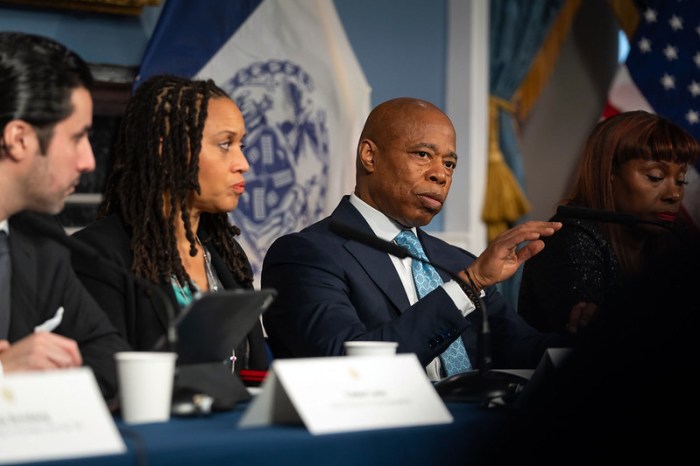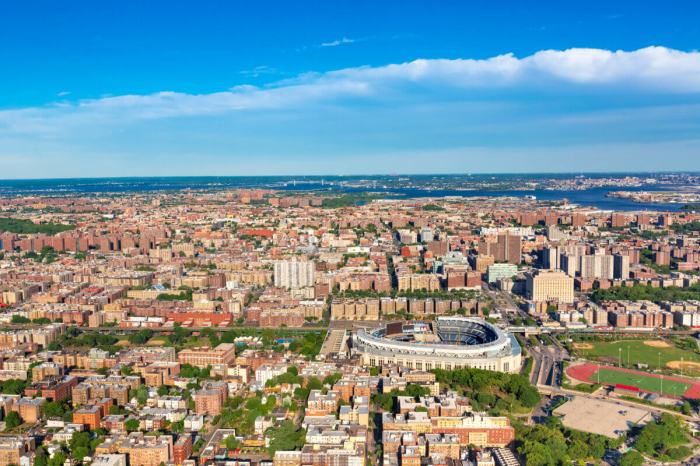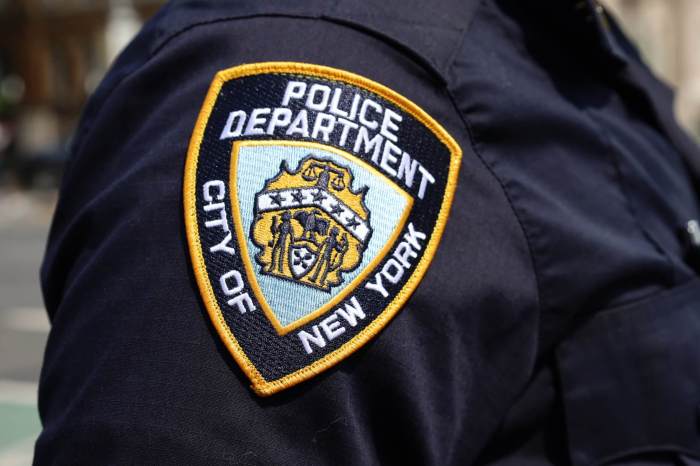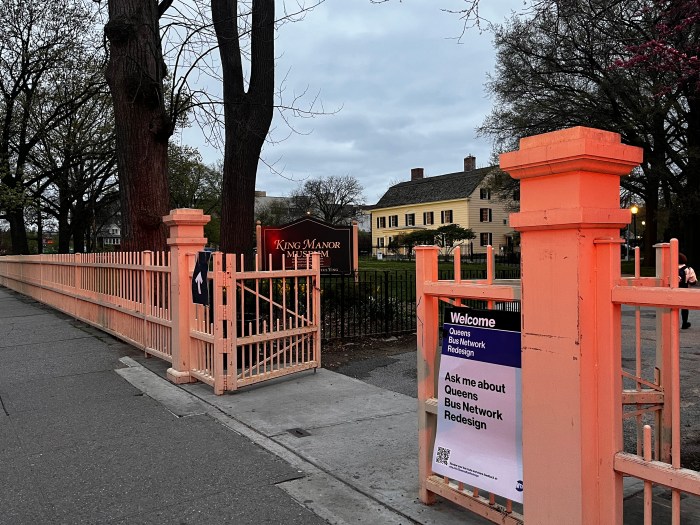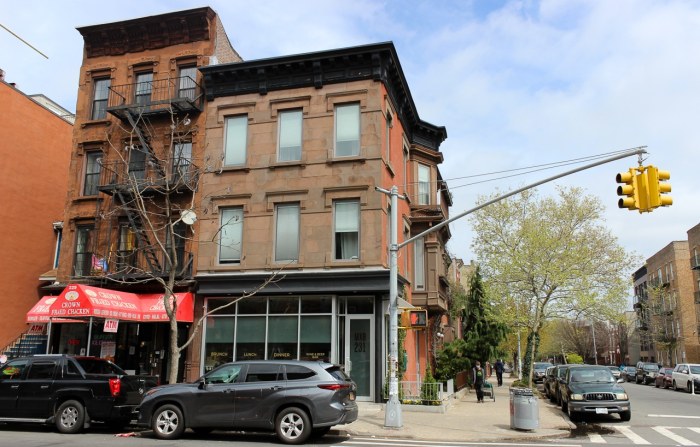 MARIO CUOMO, St. John’s
MARIO CUOMO, St. John’sMario Cuomo was the 52nd Governor of New York from 1983 to 1994. ” class=”wp-image-19766575″/>
Mario Cuomo was the 52nd Governor of New York from 1983 to 1994. Photo Credit: IFC Films
Mario Cuomo was a fascinating and inspiring public figure to watch because he struggled to do the right thing.
Often he succeeded. And when figuring out the right thing to do didn’t come easily, he struggled harder.
As I sat at the funeral service for him Tuesday, I found myself wondering how he would have approached the deep divisions in New York City over the NYPD.
Mario Cuomo was curious, probing, with a restless and searching intellect that did not accept superficial answers or tolerate conventional observations.
He was deeply religious, but understood that his church could be wrong on some issues. He was fearless, and a person of deep conviction — but could be curiously indecisive on some big questions, such as whether to run for president.
He was a brilliant speaker who could communicate powerfully with people from all walks and levels of life. But he could be dismissive of the finer, less elegant arts of public management and sometimes stumbled in getting the bureaucracy to do what he wanted or recruiting a team that could do that for him.
If he were governor today, Mario Cuomo would explain to police supporters and critics how the other side thinks, and why they say what they are saying.
He would have explained to protesters and critics that we all must “support” the police — fervently and seriously; that we owe our support to people who put their lives on the line for the rest of us every day and night. And that when change is needed, what we have to tell them is not that they’re doing a lousy job, but that there are ways in which we need them to do a difficult job even better.
And Mario Cuomo would have explained to police officers and their defenders that one of the reasons the NYPD is effective and respected is because it is a department that has always sought to improve itself, always reached for the next level of professionalism, as public needs and values change.
And he would have carried that message personally from Whitestone in the Bronx to the tip of Staten Island, and from the center of the financial district to the hallways of our public housing buildings. He would have done this with the mayor, in support of the mayor, if the mayor had been willing to join him. He would have done it without the mayor if the mayor had chosen not to join him.
And Mario Cuomo also would have talked about the explosive de facto police slowdown that is underway, which is an even more complicated and dangerous issue than the question of how force is used. He would have used his ability to communicate and his skill at serving as a bridge between arguing communities to lay the foundation for a cooperative effort to support our gifted Police Commissioner as he takes steps to bring our police force back into full-hearted commitment to their work and their responsibilities.
Mario Cuomo was one of the most thoughtful, most honest, and most compassionate among the score of elected officials with whom I have worked. He was not a great natural manager, and he could be both aggressive and devious — neither of them mortal sins and both of them occasionally necessary in the rough-and-tumble of politics. What made him special was his broad vision of where we should go as a people, his generous conception of what America could aspire to be at its best, and his own commitment to high ethical principles in government.
We miss him. And I promise you, there will be moments when we will continue to miss his special gifts.
Peter Goldmark, a former budget director of New York State and former publisher of the International Herald Tribune, served as executive director of the Port Authority from 1977 to 1985.












